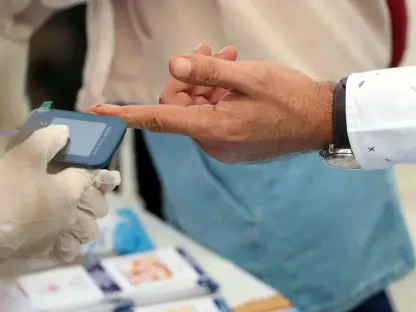The White House has unveiled an ambitious policy proposal aimed at expanding access to over-the-counter birth control for millions of Americans with private health insurance. Spearheaded by the U.S. Department of Health and Human Services, the proposed rule presents a landmark shift in national healthcare policy concerning contraception access for women. If implemented, this initiative promises to make acquiring contraceptives far more convenient and financially accessible, fundamentally altering the landscape of reproductive health care.
Expansion of Coverage
Currently, private health insurers are mandated to cover the cost of prescribed contraceptives, which includes not only prescription birth control methods but also items like condoms when accompanied by a doctor’s prescription. However, the new proposal aims to extend these benefits by allowing women to obtain over-the-counter contraceptives without incurring any out-of-pocket expenses. These would include condoms, birth control pills, and emergency contraceptives like levonorgestrel.
This proposed rule seeks to simplify the process of acquiring birth control, thereby eliminating the need for a prescription and reducing the delays and barriers associated with it. Women would be able to quickly and easily access these essential healthcare products, streamlining a procedure that has often been cumbersome. The change is expected to benefit countless women across the country by providing immediate and cost-free access to a range of contraceptives.
Political and Societal Context
The timing of this proposal is particularly significant, emerging just days before the upcoming Election Day. Vice President Kamala Harris has prominently featured women’s healthcare as a central theme of her campaign, especially in the wake of the U.S. Supreme Court’s 2022 decision that rescinded nationwide abortion rights. This proposed rule underscores Harris’s commitment to expanding women’s healthcare access, setting a stark contrast against her political rival, Donald Trump, who helped appoint the justices responsible for the ruling.
This policy initiative is designed not just as a campaign promise but as a tangible and practical solution to ongoing healthcare concerns affecting millions of women. It aims to galvanize public support around the issue of reproductive rights and to signal a broader effort by the administration to ensure that women maintain control over their reproductive health. The proposal serves as a clear statement of values regarding women’s healthcare and autonomy.
Health Impact and Financial Barriers
Emergency contraceptives like levonorgestrel, often known as “Plan B,” are vital for many women, especially when taken within 72 hours of unprotected intercourse. Any delays in obtaining these medications can significantly reduce their effectiveness, and current requirements for a prescription can create such delays. Without a prescription, the price for emergency contraceptives can be prohibitively high, reaching up to $50, presenting a considerable barrier for timely access.
The proposal also aims to cover the Opill, a newly FDA-approved over-the-counter birth control pill, which currently costs about $20 per month. By removing out-of-pocket costs for these products, the proposal seeks to eliminate financial obstacles that often prevent women from using contraceptives consistently and effectively. This elimination of financial barriers will likely have significant positive impacts on public health, promoting consistent contraceptive use and thereby helping to reduce unintended pregnancies.
Support from Medical Organizations
The proposed rule has received strong support from the medical community, including endorsement from the American College of Obstetricians and Gynecologists. Medical professionals emphasize that costs, including copays, often deter women from purchasing the birth control they need on a regular basis. By removing these financial hurdles, the proposal could significantly enhance public health by increasing the consistent use of contraceptives.
Healthcare experts stress that access to birth control is not a mere issue of convenience but a critical element of women’s health and autonomy. By making it easier for women to obtain necessary contraceptives, the proposal is expected to have broad positive implications for both individual well-being and overall public health. This medical backing lends substantial weight to the argument that the proposed changes would result in significant public health benefits.
Historical Context and Consistency with Existing Policies
The proposed expansion of contraceptive coverage finds its roots in the mandates introduced under the Affordable Care Act (ACA). The ACA required health plans to cover FDA-approved contraceptive methods prescribed by doctors as part of preventive services. This new proposal intends to build on these existing protections by eliminating the need for a prescription altogether, offering even broader access to birth control methods.
This policy shift aligns with ongoing efforts to remove unnecessary barriers that prevent access to essential healthcare services. By expanding the benefits established under existing laws, the new rule further streamlines and simplifies the process of obtaining contraceptives for those with private health insurance. The consistency of this proposal with past legislation underscores a continued commitment to enhancing reproductive healthcare.
Impact on Medicaid
It’s crucial to note that the proposed rule would not affect Medicaid, the public insurance program for those with low incomes. Under Medicaid, coverage rules for contraception are determined by individual states, and many states do not extend coverage to over-the-counter contraceptives like condoms or emergency contraception. Hence, the newly proposed rule would not alter current Medicaid policies.
Despite its inapplicability to Medicaid, the broader significance of the new proposal remains impactful as it seeks to relieve financial and logistical barriers for millions of women with private health insurance. By focusing on making contraception readily accessible and free at the point of sale, the policy aims to close existing gaps in reproductive healthcare coverage. This move represents a major advancement toward universally accessible birth control.
Conclusion
The White House has introduced a bold policy initiative designed to increase the availability of over-the-counter birth control for millions of Americans with private health insurance. The U.S. Department of Health and Human Services is leading this effort, proposing a significant change in the national approach to contraceptive access for women. Should this rule be implemented, it promises to make obtaining contraceptives significantly easier and more affordable, marking a transformative shift in reproductive healthcare in the United States.
Access to contraception has long been a contentious issue, often hindered by policy roadblocks and economic barriers. This new proposal seeks to dismantle those obstacles, ensuring that women can gain better control over their reproductive health without financial strain. By expanding over-the-counter options covered by insurance, the initiative aims to provide a more inclusive and equitable healthcare environment. This policy, if it comes into effect, represents a crucial step toward enhancing the quality of life and health outcomes for many women across the nation.









